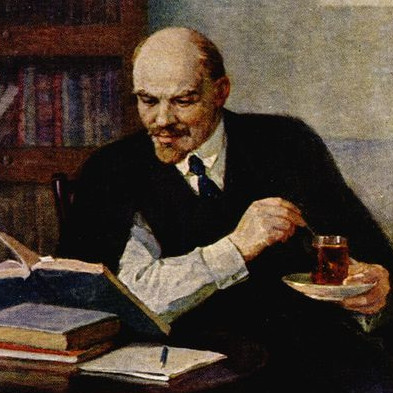- cross-posted to:
- memes@hexbear.net
The capitalist class and the bourgeois state are always waging class war against the workers. Every time they increase your hours, cut your wages, cut your benefits, increase your rent, increase your cost of living, gut your social safety nets, fire you, evict you, outsource your job…that’s class war. What they want is for you to not fight back; they want you to just silently take it like an obedient wage slave.
They want you to remain atomized, alienated and asleep, fighting over scraps against your fellow worker, not congnizant of your shared class interest and disengaged from any form of collective struggle. Blame yourself, blame the poor, blame the immigrant, blame “the other” who is different, just don’t look up to see the real architects of your misery above you. Never question the system and never ask why so many have so little while so few have so much - “the rich are just like you, don’t you know?”.
Yet workers have no choice but to fight the class war because they are always under attack. There will always be class war as long as there is class society, because the interests of the exploited and exploiter classes are irreconcilable and diametrically opposed. There is only one way that the class war can end, and that’s when one class eliminates the other. And since capitalists cannot exist without workers whereas workers can exist just fine without capitalists, there is no question who will be left standing and who will go into the dustbin of history.
This…this is very on the nose.
Like, this is superliminal propaganda
I found a YouTube link in your comment. Here are links to the same video on alternative frontends that protect your privacy:
Full Article:
Don’t replace the culture war with class war Alice Thomson 6 - 7 minutes
When Rishi Sunak became prime minister, a confused American official got in touch to ask: “What is a Wykehamist?” I explained it was the term for a pupil who was educated at Winchester, a public school, which in Britain is actually a private school. It’s shorthand for posh and privileged.
“Your country is obsessed by class,” he replied. “I’m trying to explain back home that you don’t seem to mind much about race or religion, it’s all about background.”
Well, yes, we are still fixated on class. It’s front-page news when Princess Anne is struck by a horse and goes to an NHS hospital, and we still seem to care about where our politicians come from as much as where they are going.
The historian Peter Pulzer wrote in 1967: “Class is the basis of party politics, all else is embellishment and details.” In some ways not much has changed, except that most politicians now — apart from Sir Jacob Rees-Mogg — want to prove they weren’t born entitled and have had to strive and show resilience.
During this election campaign Sir Keir Starmer has been so worried about his knighthood, which according to focus groups makes him sound grand, that he has repeatedly told us his father was a toolmaker and that he was brought up in a pebbledash semi with a frayed carpet. Sunak has reiterated that his parents struggled to pay the school fees and that he didn’t even have Sky TV.
Meanwhile, public school-educated, clay pigeon-shooting former Coutts bank account holder Nigel Farage likes to pretend he is the salt of the earth, with his red-trousered Reform party waging war on “the elite ruling class”.
Now David Lammy, the shadow foreign secretary, has said that the Conservatives are “not the class of people Britain needs to run it” because they have a “public school smallness” about them. The Tottenham choirboy who went to Harvard compared Boris Johnson and Lord Cameron to aristocratic British colonial administrators, “people who have no real sense of the world as it is”. By contrast, he said, Angela Rayner, the Labour deputy leader from Manchester who was a single mum and carer at 16, “gets it”.
Jonathan Ashworth, the shadow paymaster general, then suggested that Labour could have the most working-class and state-educated cabinet since 1945. “I’m definitely working class. My dad was a croupier in the Playboy Club in Manchester, my mum was a bunny girl … so I know all about class,” he said.
Bridget Phillipson, the shadow education secretary who grew up “at the margins” in Tyne and Wear, recently told The Rest Is Politics podcast that she was a member of “one of the most class-conscious shadow cabinets we’ve seen for some time”.
If Labour wins on Thursday, the next cabinet is likely to be 78 per cent state educated. Meanwhile Sunak’s cabinet is ethnically more diverse but is one of the most privately educated for decades, with 63 per cent having attended fee-paying schools.
A new book, Born to Rule: The Making and Remaking of the British Elite by Aaron Reeves and Sam Friedman, out in September, suggests that only 7 per cent of Sunak’s cabinet came from working-class families, compared with 46 per cent of Starmer’s team.
But Labour would also have the most educated top team in history, with nearly half of its ministers, 15 of 31, having gained at least one postgraduate degree and all but two having undergraduate degrees, according to analysis by Times Higher Education. Two of them, Anneliese Dodds and Peter Kyle, hold PhDs. In contrast, only six of Sunak’s cabinet have postgraduate qualifications, which suggests that class is now no barrier to academic achievement.
It’s impressive that Rayner, who left school at 15, could this week become deputy prime minister and that Wes Streeting, whose grandfather had a string of convictions for armed robbery, was president of the University of Cambridge students’ union and could soon be health secretary. That Rayner is as happy drinking champagne at Glyndebourne as she is doing shots of Venom at a rave should sum up modern Britain.
But it’s important that Labour doesn’t replace the Tories’ distracting culture wars of the past few years with class warfare. For a start, their core vote is changing: the latest YouGov tracker poll has a higher percentage of ABC1 professional middle-class voters backing Labour than C2DE working class.
Voters appear to have had enough of distractions and division; the majority, I suspect, just want a pragmatic government that’s going to get on with the job of sorting out education, the NHS, transport and social care rather than stoke any more discord. Most say they hope for a more equal society, but they espouse meritocracy and aspiration rather than Jeremy Corbyn’s politics of envy and redistribution.
Labour needs to be clear about its motivation. Its policy of putting VAT on private school fees may be a practical measure to find more money for the state sector but they shouldn’t be doing it if it’s also about punishing the rich.
It is understandable for Starmer to look at increasing capital gains tax and inheritance tax when he has ruled out an increase in income tax, corporation tax and national insurance contributions. He will need to fund his plans to tackle hospital waiting times, child poverty and the national debt somehow. But if his team frames it as bashing the most wealthy they will lose an important slice of their support just to appease the left.
One of the Tories’ greatest weaknesses during the past 14 years has been the way they have managed to alienate swathes of the electorate, from the young to graduates, Waitrose mums, the red wall and the blue wave. Labour’s task should not be to pitch classes against each other but to bring as many people as possible together into the big tent — or even the posh marquee.
I propose all nuclear powers empty their arsenals on London. Just to be absolutely sure that this ghoul ceases to exist.





